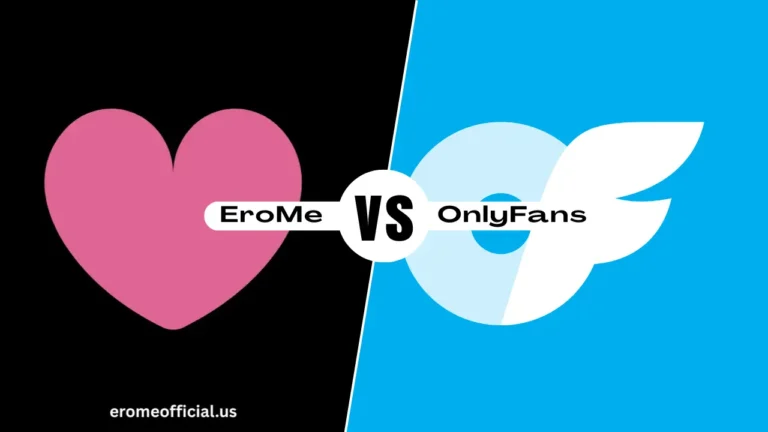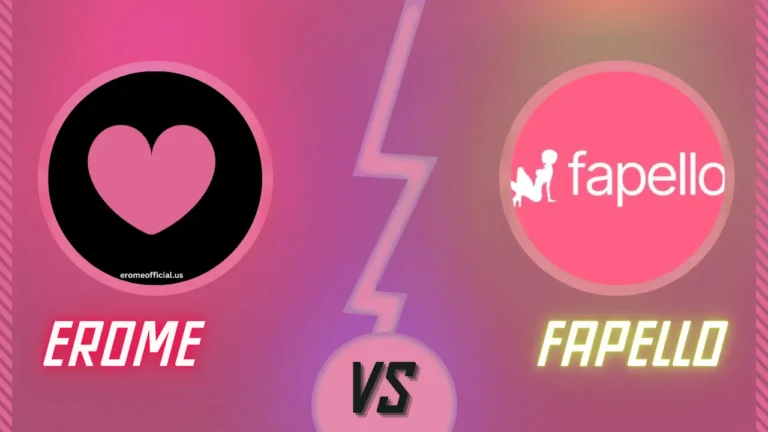Erome vs Thothub – Which One Should You Use?
When it comes to exploring adult content or sharing personal videos and photos online, there are a lot of platforms out there. But two names that often come up in discussions are Erome and Thothub, Both offer free access to a wide range of content and have huge collections of videos and images. But if you take a closer look, you’ll quickly see that these platforms are built for different purposes.
Erome is a platform made for creators who want to upload and share their own original content. It gives people complete freedom to post what they want, when they want, without needing approval or jumping through hoops.
Thothub is more like an archive of reposted content much of it taken from platforms like OnlyFans, TikTok, and Patreon. It’s known for leaked videos and unauthorized uploads. While it’s neatly organized and easy to explore, the content often appears without the original creator’s permission.
So the big question is: Which one should you use? That depends on what you care about—creator control, content fairness, privacy, or just browsing ease. In this blog, we’ll compare both platforms in a simple, honest way, so you can decide which one really fits your needs. Let’s break it all down and settle the debate.
What is Erome?
Erome is a content sharing platform where people can upload and view personal videos and photo albums. It’s fully open to the public and doesn’t require users to create an account, pay any subscription, or follow strict rules.
What makes Erome stand out is that creators are in control. They upload their own content, add captions, organize albums, and can even delete content at any time. It’s used by people who want to share their content without limits and without needing approval from a platform.
Key Features of Erome
What is Thothub?
Thothub is a site known for offering free access to content that was originally posted on other platforms like OnlyFans, Patreon, and TikTok. It doesn’t focus on original uploads by creators. Instead, it’s more like an archive of leaked or reposted material, collected from all over the internet.
Thothub has become popular among users who want to browse high traffic content, especially from influencers, without subscribing to their paid pages. It also has a unique setup with daily auto uploaded collections and categories sorted by tags or creators.
Key Features of Thothub
The Core Difference
The biggest difference between the two platforms is who controls the content and how it gets there.
This basic difference affects everything else privacy, safety, trust, monetization, and even the ethics of how you interact with the content.
How Safe Are They to Use?
Erome
Erome is safe for both creators and viewers. You don’t need to register, there are no pop ups, and it doesn’t track your personal details. Creators can stay completely anonymous if they want, and viewers just click and watch.
Thothub
Thothub allows free browsing, but the content you see often comes from premium platforms without proper permission. This raises ethical concerns. Creators usually didn’t agree to have their content posted there, which can feel invasive or even harmful to them.
For viewers, there’s no risk in browsing but you’re viewing someone’s private content without their consent. That’s a safety and respect issue worth thinking about.
User Experience: Which Feels Better?
Erome’s Experience
Thothub’s Experience
Who Benefits on Each Platform?
Let’s talk about who gains from using each site.
Erome is built for creators.
Thothub is built for viewers.
If you’re a content creator, Thothub gives you zero benefit. Your content could be there without your permission, and you get nothing in return.
Monetization Options
Erome
Erome doesn’t have its own payment system, but it gives you full freedom to link to other platforms. Many creators use Erome as a free marketing tool. They upload previews or full content and add links to their:
This drives real traffic to where creators earn income.
Thothub
There’s no way to earn on Thothub. It doesn’t support creators. You won’t find tip options, paywalls, or creator links. It’s simply a place where fans share or repost content, and the original owner usually isn’t involved at all.
Content Quality and Type
Erome
Thothub
Ethical Considerations
This is where things get serious. Erome is fair. People post their own work, and they can take it down when they want. There’s no stealing, and users know the person sharing the video is the one who created it.
Thothub has a reputation for leaked content, especially from platforms where creators charge for access. It’s often used to find exclusive content without paying. This hurts the creators, violates their privacy, and can ruin trust between creators and fans.
If you respect creators and believe in fair content sharing, this is something to think about.
Can You Use Both Platforms Together?
Technically, yes. Some fans use Erome to find new creators and follow their links to premium pages. Others browse Thothub just to see what’s trending.
But creators usually avoid Thothub completely unless they’re trying to report stolen content. Erome is a better place to build your presence if you’re a creator.
Pros and Cons Breakdown
Erome Pros
Erome Cons
Thothub Pros
Thothub Cons
So, Which One Should You Use?
Choose Erome if you are:
Choose Thothub if you are:
But keep in mind just because something is free doesn’t mean it’s fair.
Conclusion
Erome and Thothub offer two different paths to discover or share content online. Erome gives power to creators. It allows you upload, manage, and promote your own content with no strings attached. You can build a fanbase, stay anonymous, and send people to your paid pages, all from one place. It respects creators, gives viewers clean access, and runs on fairness.
Thothub, on the other hand, is built around reposting. Most of the content isn’t uploaded by the original creator. In many cases, it’s leaked from paid platforms without permission. While it’s free to browse and has a big collection, it comes with ethical problems and offers nothing to the people who made the content in the first place.



